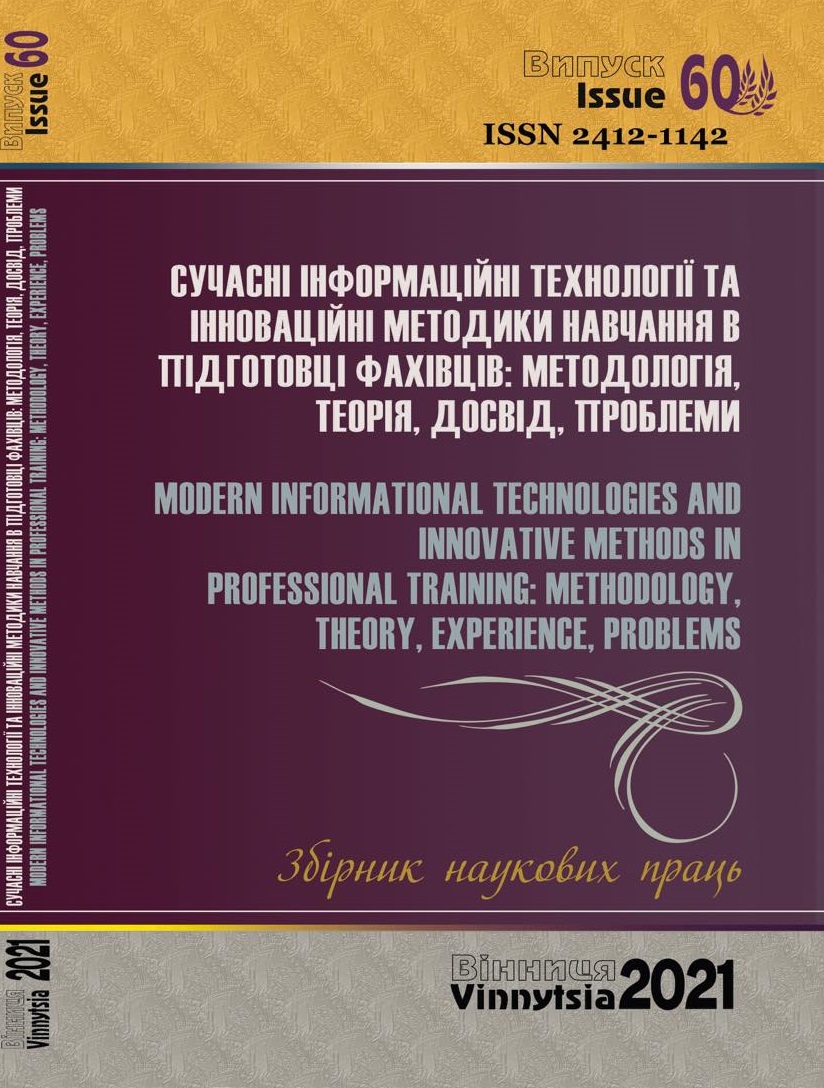CONTEMPORARY ACTIVE ENGLISH LANGUAGE TEACHING METHODS: THEORETICAL REVIEW AND PRACTICAL ASSIGNMENTS
DOI:
https://doi.org/10.31652/2412-1142-2021-60-184-191Słowa kluczowe:
teaching English; modern methods; interactive learning; brain activity; communicative approach; role-plays; new assignmentsAbstrakt
The most important goal of education is improving the quality of teaching. There are several
modern teaching methods that can be used in teaching and learning. These methods are focused on students ́
active work. In our research we have studied theoretical along with practical grounds of some of these
methods. The effectiveness, motivation and problems of these methods were broadly described and verified
in the survey. Outcomes of this reasearch are discussed in this paper. In our research several interactive
teaching methods were explored. We have concluded that: interactive teaching methods can help us to teach
English for understanding; it is necessary to change the role and position of the teacher in the classroom;
the English language teacher in the 21st century have to be a classroom manager; the teacher has to be an
expert not only in English language, but also in pedagogical science; traditional teaching methods are not
effective; the goal of the innitiative is to apply new methods based on the constructivist learning theory.
The research results have witnessed that the learning and teaching process is more effective, when students
can construct their knowledge by their own.
We have described the method of physical response (total-physical response). In the frame of our research
we have outlined main features and rules of communicative approach. Methods and techniques within the
communicative approach were presented as well.
The novelty of the paper on the actual issue related to the introduction of modern methodology in the
educational process is characterized by the description of some methods, such as: contextual method, the
integrative method, role play, chainstory, the method of interval repetitions, Mueller's method, express
method оf Ilona Davydova, Pimsler's method, Methods of Dmitry Petrov, Elijah Frank's Method. Moreover,
the practical significance of the research is supported with the group of seven creative assignments that can
be actively used in the English teaching process with various topics.
Pobrania
Bibliografia
Buelh, D. (2008). Classroom Strategies for Interactive Learning. International Reading Assoc. Newark, USA.
P. 12 – 23. (in English)
Holubová, R.(2008). Effective teaching methods – Project-based learning in Physics. US-China Education
Review, Vol. 5, No.12. p. 27. (in English)
Maidment, S., and Roberts, L. (2007). Happy Street 1 Teacher’s Book. Shanghai: Oxford University Press. P. 17
– 45. (in English)
Namitha, C. (2018). Modern methods of teaching. Journal of Applied and Advanced Research, 3(Suppl. 1).
P. 39−41. (in English)
Teo, R. & Wong, A. (2000). Does Problem Based Learning Create a Better Student: a Refelection? Paper
presented at the 2nd Asia Pacific Conference on Problem – Based Learning: Education Across Disciplines,
December 4-7, 2000, Singapore. (in English)
Scrivener, Jim (2005) Learning. Teaching. Oxford: Macmillan. P. 45 – 69. (in English)
Shokley, B. & Bond, H. & Rollins, J. (2008). Singing in My Own Voice: Teachers‘ Journey Toward Self-
Knowledge. Journal of Transformative Education. Vol. 6, Issue 3, p. 182–200. (in English)
Pobrania
Opublikowane
Numer
Dział
Licencja
Prawa autorskie (c) 2021 Наталія Василишина

Utwór dostępny jest na licencji Creative Commons Uznanie autorstwa 4.0 Międzynarodowe.





